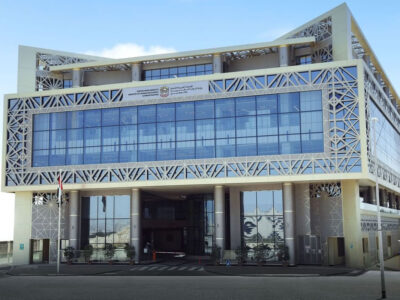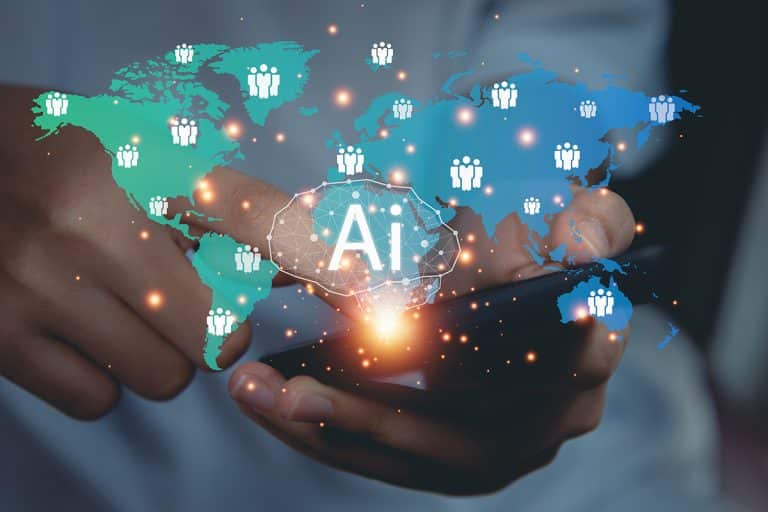Companies in the United Arab Emirates are tackling the critical AI talent shortage head-on. As the nation pours billions into AI development, with major tech companies using events like GITEX to scout for top-tier talent.
As the UAE pours billions into AI development, industry leaders are focusing on education and upskilling to ensure the workforce can keep pace with the country’s ambitious plans.
The UAE’s push to become a world leader in AI by 2031 is creating a surge in demand for skilled professionals. With investments in AI skyrocketing and only one in ten workers globally possessing the necessary skills, the country is using its position as a tech hub to attract and nurture talent.
The UAE’s commitment to AI is not just rhetoric — it’s backed by substantial financial muscle and strategic vision. Since last year, the country has witnessed a remarkable surge in AI-related investments which have positioned it as a global AI powerhouse.
Investor confidence in AI has also been palpable, with AI stocks dominating the UAE’s investment landscape in early 2024. Perhaps most tellingly, over half of UAE CEOs have prioritised generative AI investments for 2024 according to KPMG, a clear indicator of the business community’s faith in AI’s transformative potential. These statistics paint a picture of a nation not just embracing the AI revolution, but actively shaping its future.
The global AI talent crunch
However, the global talent numbers are stark. Despite 75 per cent of companies prioritising AI talent acquisition, online one in 10 workers possess the necessary skills. This disparity is creating a bottleneck in AI adoption, with implementation rates plateauing at around 50 per cent of companies globally, down from a 2019 peak of 58 per cent.
Maymee Kurian, Group Chief Human Capital and Culture Officer at G42, put this evolution into perspective in an interview with Arabian Business on the sidelines of GITEX 2024 in Dubai.
“AI is the goal we’ve had in mind for the past 10 years. Companies have gone through various stages – mechanisation, automation, digitalisation, and now AI. We’re at a point where industries have matured enough to layer AI on top,” she said.
Kurian elaborated on the company’s approach to AI adoption.
“We focus on two different buckets. One is the essential optimisation for enabling services. The second is where we really need AI-powered organisations. We buy most of the capabilities from the external market, rather than trying to build it within, simply because of the changing atmosphere, the changing workforce that we get, or changing demands that we have in AI.”

UAE: At the forefront of AI readiness
The UAE is not just participating in this AI revolution; it’s leading it. In 2017, the country appointed the world’s first Minister of AI, and this year launched a comprehensive AI blueprint that saw the appointments of Chief AI Officers in government entities. This foresight is paying dividends, with the nation now at the forefront of AI adoption and ethical implementation.
“UAE is leading very much on a maturity curve,” Kurian said.
“We are in the very thick of action now, while also talking about responsible AI. We’re in a mature stage where we’re ready to take ethical AI, responsible AI – that’s really advanced compared to many other countries.”
The upskilling imperative
The World Economic Forum estimates that up to 40 per cent of the global workforce may need to reskill in the next three years due to AI and automation. This statistic underscores the urgency of AI education and training initiatives.
Abdelilah Nejjari, Managing Director for Cisco in the Gulf and Levant region, also spoke to Arabian Business on the sidelines of GITEX where he highlighted the importance of workforce readiness.
“There was a recent report talking about 65 million new jobs specifically related to AI. 95 per cent of existing fields are expected to be heavily or moderately impacted by AI.”
Nejjari added that he believes AI is “here to stay.”
“My own belief is that we have seen the cloud die, but AI will stay, and now we live in a hybrid cloud. From an AI perspective, I truly believe that it is here, and it’s going to have a very good and positive impact on everybody, including businesses.”

Industry response? Education and collaboration
Companies like G42 and Cisco are taking proactive steps to address the talent gap. G42’s approach involves a two-pronged strategy: optimising enabling services with AI tools and acquiring external talent for specialised AI roles.
“For example, robotics – it’s not like we can develop a robotics program within and train our people to become robotic engineers very quickly. So what we do is that we buy these talents from external market, and then we bring them here as a pilot group, and then we develop robotics into different kind of tools and systems that we have,” Kurian said.
G42 is also using major tech events like GITEX as a platform to scout for top talent.
“From a talent perspective, we have our entity here, not just to showcase what we have, but also to source what’s out there and get collaborative. We are very known for our collaborative spirit as a company. We do everything together with other great players in the market,” Kurian explained.
She added that the company’s reputation is attracting significant interest from potential employees.
“We realise that there’s a lot of appetite for G42. It’s a great place to work, an award-winning organisation where people really thrive, and people are empowered to innovate and create their path. This means that our reputation is reaching elsewhere, and we have a lot of appetite for people to apply.”
Cisco, through its Networking Academy program, has trained 120,000 learners in the UAE since inception, with an impressive 64 percent female participation rate.
“We’ve introduced an AI track in our program,” Nejjari said. “Our contribution to the whole digital transformation and AI adoption includes preparing the country in terms of skills.”
Skills vs. degrees
As the AI landscape evolves, there’s a shift in focus from traditional qualifications to practical skills. Generative AI is playing a role in this transition, helping to streamline hiring processes by prioritising capabilities over formal degrees.
“The software engineer’s role is changing with the intelligent platforms we’ve developed. Coding is becoming easier, so we’re focusing more on niche areas like robotics and AI,” Kurian said.
“We have 1,100 roles available. The most common entry-level ones are software engineers, but then the software engineers’ roles are also changing with the intelligent platforms that we have developed.”









